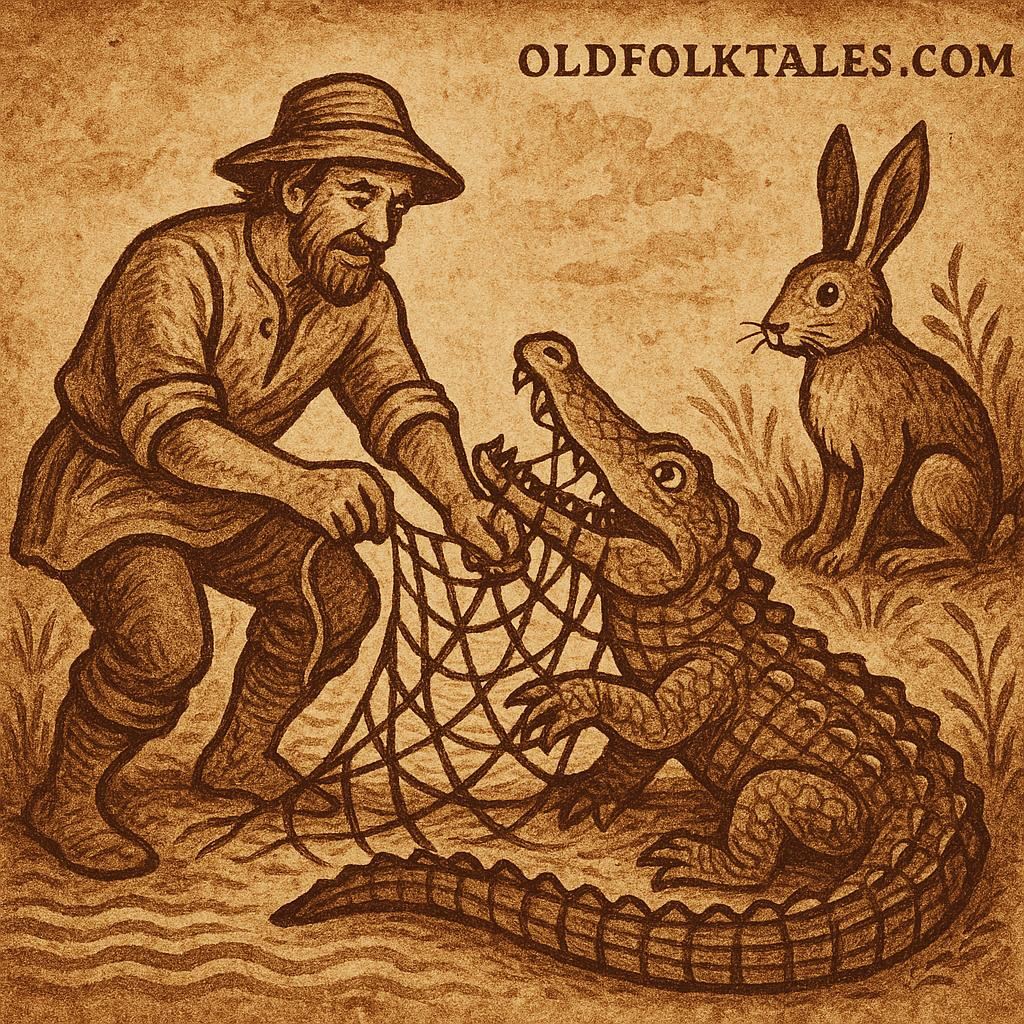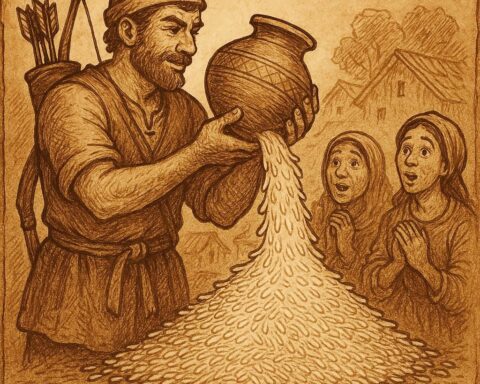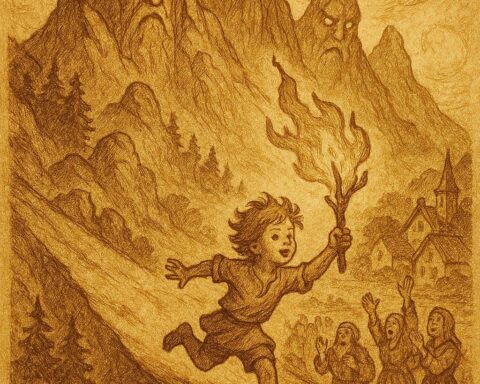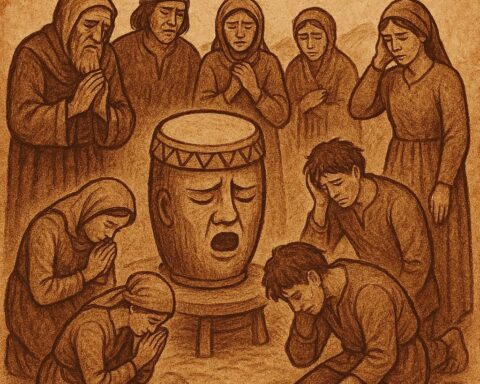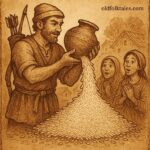Long ago, in the land of the Mende people, the rivers flowed wide and deep. They fed the villages with fish and quenched the thirst of the fields. Along these waters lived a humble fisherman named Kpana. Each morning he paddled his small canoe onto the river, casting his nets and thanking the ancestors for whatever catch he received.
One hot afternoon, as Kpana fished near the tall grasses along the riverbank, he heard a strange groan. At first he thought it was the cry of a buffalo, but the sound came from the water. Cautiously, he leaned over the side of his canoe and saw a great crocodile tangled in a fisher’s net. Its scales were scratched, its mouth half open, and its tail flailed in panic.
“Help me, fisherman!” the crocodile pleaded. “I am trapped. If you free me, I will never forget your kindness.”
READ THIS: The Woman Who Spoke with Ghosts
Kpana hesitated. Everyone knew the crocodile was a fearsome predator, yet the creature’s suffering stirred pity in his heart. He cut the thick cords of the net with his knife until the crocodile slipped free into the water.
But no sooner was the animal released than its eyes gleamed with hunger. It lunged at Kpana and said, “Now that I am free, I must eat you. My belly is empty, and you are the nearest meal.”
The fisherman’s heart pounded. “Is this your gratitude?” he cried. “I saved your life, and you repay me with death?”
The crocodile only laughed, showing rows of sharp teeth. “Such is the way of the world. The strong take what they need.”
Terrified, Kpana begged for fairness. “If you will not honor your promise, at least let the creatures of the land judge between us. If they say I deserve death, then you may eat me.”
The crocodile, amused, agreed. “Let the world decide.”
So they crawled and walked from the river, seeking judgment. First they came upon a great silk-cotton tree. Kpana explained what had happened, but the tree sighed. “Fisherman, I give shade and wood to the people, yet they cut my branches and burn my trunk. Gratitude is rare among men. I say the crocodile is right to take his meal.”
The crocodile snapped his jaws in triumph, but Kpana begged for another judge. They walked on until they found a weary old cow grazing by the path. Again Kpana told his story, but the cow shook her head. “I give milk and labor to humans, yet when my strength fails, they slaughter me for meat. The crocodile speaks truth. Gratitude is little found in this world.”
The crocodile’s eyes glittered. “You see, fisherman? None will save you.”
Still Kpana pleaded. “One more judge! If even one voice supports me, then justice will be on my side.”
At last they met a cunning hare sitting by a mound. The hare listened carefully and twitched his ears. “So, crocodile, you say the fisherman caught you in a net, freed you, and now you wish to eat him?”
“Yes!” the crocodile roared. “That is the way of strength.”
“But how can I believe this unless I see it with my own eyes?” asked the hare. “Show me exactly how you were trapped, so I may judge fairly.”
Grumbling, the crocodile agreed. He crawled back to the riverbank and allowed the hare and fisherman to place the net around him once more. When he was tangled again, thrashing and helpless, the hare laughed. “Foolish crocodile! The fisherman gave you freedom once, and you tried to repay him with death. Now remain in your prison, for you deserve no better.”
The fisherman bowed gratefully to the hare, who had saved his life through wisdom. The crocodile raged and roared, but no one came to set him free again. From that day, the people told this story as a warning that betrayal and ingratitude lead only to punishment.
Moral Lesson
The story of The Fisherman and the Ungrateful Crocodile teaches that gratitude is the foundation of justice and community. When kindness is answered with betrayal, the betrayer loses trust and respect. Strength without fairness leads to downfall, while wisdom and honesty protect those who walk with truth.
Knowledge Check
What did the fisherman do to help the crocodile in The Fisherman and the Ungrateful Crocodile?
He cut the net that trapped the crocodile and set it free.How did the crocodile react after being rescued in The Fisherman and the Ungrateful Crocodile?
Instead of showing gratitude, it tried to eat the fisherman out of hunger.Which creatures judged the case in The Fisherman and the Ungrateful Crocodile?
The silk-cotton tree, the cow, and the hare all gave their opinions.Why did the tree and the cow side with the crocodile in the folktale The Fisherman and the Ungrateful Crocodile?
They felt unappreciated for their service to humans and believed gratitude was rare.How did the hare trick the crocodile in The Fisherman and the Ungrateful Crocodile?
By asking it to demonstrate how it was trapped, then leaving it tied in the net again.What is the main lesson of The Fisherman and the Ungrateful Crocodile?
The moral is that ingratitude and betrayal lead to downfall, while wisdom and justice protect the innocent.
Source: Mende folktale, Sierra Leone. Collected by Arthur Abraham in Mende Oral Narratives (1976).
